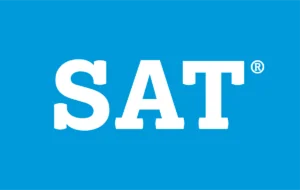Starting off a week before exams is always a stressful time. Moreover, students often procrastinate going over the lectures and notes and leave everything until the last minute. But what should you do, if you happen to be in that situation?

✅ AI Essay Writer ✅ AI Detector ✅ Plagchecker ✅ Paraphraser
✅ Summarizer ✅ Citation Generator
Key Takeaways:
- Prioritize structured daily planning and minimize digital distractions for effective studying.
- Utilize methods like verbalizing information and involving multiple senses to enhance memory retention.
- Balance rigorous study with self-care practices, such as hydration, proper sleep, and breaks, to maintain cognitive performance.
Exams can be a real roller-coaster, right? As the big day nears, countless students find themselves drowning in a whirlpool of notes, textbooks, and a good dose of stress. Let’s be honest, prepping for these tests isn’t just about cramming facts into our brains; it’s an emotional marathon too. Nights get longer, sleep becomes a luxury, and that tricky chapter? It starts to feel like an arch-nemesis. While some might thrive in this adrenaline-fueled rush, for others, it’s like navigating a maze in the dark.
A similar discussion appeared on Quora and users quickly reacted with their own trusted and reliable tips. We decided to arrange them into several groups for easier understanding. Let’s dive in!
Time and Focus Management Tips for Students
We’ve all been there: exam season approaches and suddenly, every minute counts. It’s not just the mountain of notes that’s daunting, but the ever-present distractions and that feeling of time slipping through your fingers. Researchers say, the COVID-19 lockdown has significantly altered postsecondary students’ behaviors, isolating them from peers and instructors. This likely led to more off-task digital device use during classes and study time, influencing the ability to focus on your studying. You want to learn, but there’s also that show you want to watch, that new post on Instagram, or that game on your phone that keeps calling you. So, how can we make the most of our time without feeling overwhelmed?
It’s essential to have a clear plan. Break down your day by allocating specific blocks of time for different activities. Make sure you have dedicated slots for studying, but don’t forget to include time for eating and resting. Keeping a balanced routine will not only help your studies but also ensure you stay healthy and refreshed.
“Time management. Schedule everything from studying, eating, and sleeping.”
Remember, our brains work best in short bursts. Instead of long, draining study sessions, opt for 30-50 minute focused periods. After each, take a 10-minute break to stretch, hydrate, or just breathe. This technique can significantly boost your ability to retain information.
“You can’t cut the forest from a single blow from your axe. So, break your study time into chunks and take breaks.”
In this digital age, gadgets can be our biggest distractions. If you find your phone or laptop luring you away from your books, consider locking them up during study times. The final week and day before an exam are crucial. Design a specific study plan for this period. Knowing what you’ll tackle and when can give you a clear direction and ease anxieties.
“Take your phone and laptop and lock them in your cupboard or give them to your parents while you are studying.”
In conclusion, while the weight of upcoming exams can be overwhelming, the real challenge often lies in how students manage their time and maintain focus amidst the chaos. It’s not merely about studying hard but studying smart. With these strategies in hand, students are better equipped to navigate the tumultuous waters of exam season and emerge victorious.
Using Cognitive and Sensory Techniques for Preparation
We’ve all felt that pressure: the exam is just around the corner, and there’s so much material to cover. It feels like there’s a constant hum of anxiety and anticipation. Amidst all this, our brain and senses can actually be our allies, helping us retain and recall information more efficiently.
A clear roadmap always helps. If you’re studying for a language exam, start your study journey with vocabulary, laying down the groundwork. Then, wade through the reading material. As things begin to gel, review the content and scribble down notes. This step-by-step method clarifies concepts and ensures you’ve left no stone unturned.
“My personal favorite: learn vocabulary first and then read (the information will now make sense) Afterwards re-read and take notes.”
Ever tried explaining a concept to your friend or colleagues who are also studying? It might sound odd, but verbalizing information helps reinforce it in our minds. If you can explain it, you’ve truly grasped it.
“When studying something new tech a friend about it. Let them ask questions. If you can teach something well, then you understand it well.”
Don’t just skim through your notes, read them out loud! A recent Waterloo study organized by Colin MacLeod discovered that reading text out loud aids in transferring words to long-term memory. By doing so, you harness another sense – hearing – and studies show this can boost retention rates by up to 50%.
Our senses are powerful memory triggers. Try studying with a particular scent around. Later, when revising, use that same scent to jog your memory. Similarly, munching on gum while studying and during recall can work wonders.
“Then the night before the exam smell the same scent and try to recall what you memorised. The chances of recalling everything are pretty high. Weird but true!”
It might seem trivial, but the color of your ink matters. Opt for blue when jotting down notes. Not only is it soothing to the eyes, but it also enhances memory recall compared to other colors.

In conclusion, the road to exam success isn’t just about hours spent with books. It’s also about leveraging our brain’s and body’s unique abilities. Embrace these cognitive and sensory techniques, and watch your exam prep transform from a tedious task to an engaging journey. Dive in with determination, and remember: you’ve got this in the bag!
External Resources and Techniques to Use Before Exams
We’ve all felt the pressure to cover every detail, and the wish for some magic tool to help us prepare. Sure, our notes are valuable, but is there something more we could be doing? Thankfully, the digital age offers numerous resources to aid our preparation.
Don’t just stick to the materials you have. Try venturing into different exam preparation websites, since most of them have the majority of resources you might need. Just type in your textbook’s name, and voila! You’ll find an array of practice exams and revision resources tailored to your syllabus.
Confused about a concept? Visual and auditory aids can be your savior. Platforms like YouTube host countless educational videos that can break down complex topics into digestible pieces.
“Watch Youtube videos for the topics you don’t understand well.”
Time’s ticking, and you’ve got a thick chapter ahead. Fear not! Skim through it. Focus primarily on the beginning and the end, and give the middle content a swift scan. You’d be surprised at how much you can grasp this way.
“If you think that the subject has 10 BIG chapters and you need to read them faster just skim though the chapters. Read the first and last paragraphs of the reading and skim through the middle. It’s almost as effective as reading everything.”
Knowledge is solidified when tested. Don’t just read; challenge yourself. Quiz on topics, review, and retest. This iterative process builds confidence and ensures you’re truly exam-ready.
“Study, test yourself, study again, then test. Follow this until you feel confident about the subject matter.”
Exams might be daunting, but with these modern techniques and resources, you’re not alone in your journey. Harness these tools, and you’ll be walking into that exam room with a stronger, more assured stride. Believe in yourself and the tools at your disposal!
The Importance of Maintaining Physical Well-being and Environment
In the midst of flipping through pages, re-reading notes, or sketching out plans, there’s something else that can slip through the cracks—our well-being. You might want to pull an all-nighter, but your body craves rest and nourishment. How do we balance the scale between productivity and self-care?
When burning the midnight oil, it’s tempting to keep going till dawn. However, a quick nap before sunrise, even if it’s just for 20-30 minutes, can be a game-changer. Research has indicated that a one-hour nap can enhance learning similarly to an hour of focused cramming. Testing 30 minutes post-learning revealed that knowledge retention was notably higher after napping for an hour or intensive studying, compared to just taking a break. It recharges your mind, making you more alert and efficient.
Ever noticed how a few sips of water can immediately make you feel awake? Always keep a water bottle at arm’s reach. Regular hydration not only quenches your thirst but also stimulates clearer thinking.
“Keep a bottle of water at your desk. Drinking water simulates body and helps in thinking properly.”
Your mind and body are deeply interconnected. Ensure you’re nourishing both. Aim for 7-9 hours of sleep, incorporate a balanced diet, and squeeze in some form of exercise—even if it’s just a 10-minute walk.
“When not in that, mood don’t keep sitting on your desk and fool yourself that you’re studying. Go for a walk, listen to some good soothing instrumental songs, have some chocolate or your favorite food.”
These steps can dramatically improve your cognitive performance and overall mood. Moreover, before hitting the sack, dedicate a quiet moment to review what you’ve learned that day. Even just two hours of focused recap can solidify your understanding and aid memory retention.
In conclusion, while the race towards our goals is significant, it’s vital to remember that the vessel driving that journey—our body and mind—needs care and attention. Remember, self-care is not a diversion; it’s a part of the process. Prioritize yourself, and success will follow. Good luck with your exams!
Follow us on Reddit for more insights and updates.





Comments (0)
Welcome to A*Help comments!
We’re all about debate and discussion at A*Help.
We value the diverse opinions of users, so you may find points of view that you don’t agree with. And that’s cool. However, there are certain things we’re not OK with: attempts to manipulate our data in any way, for example, or the posting of discriminative, offensive, hateful, or disparaging material.